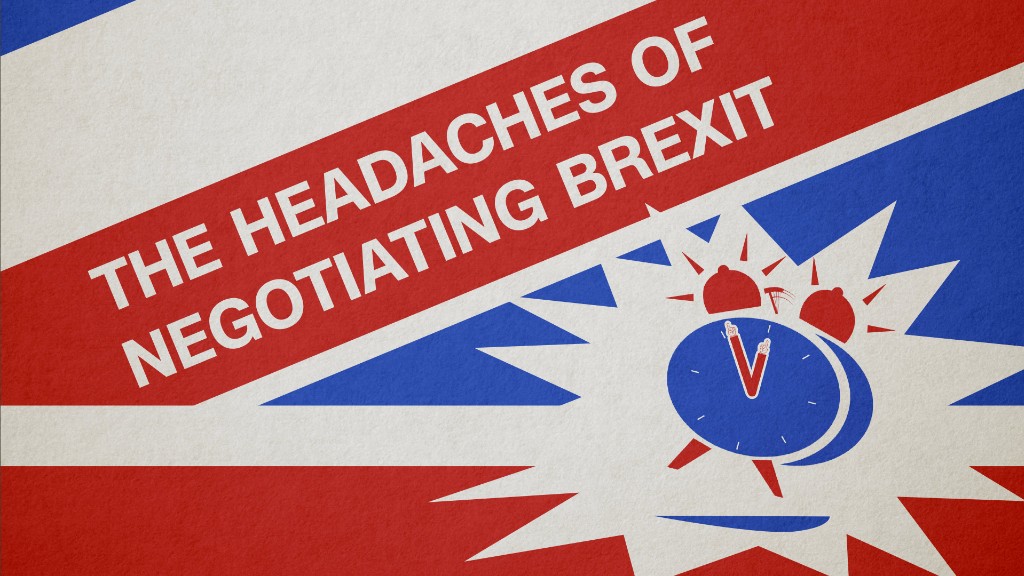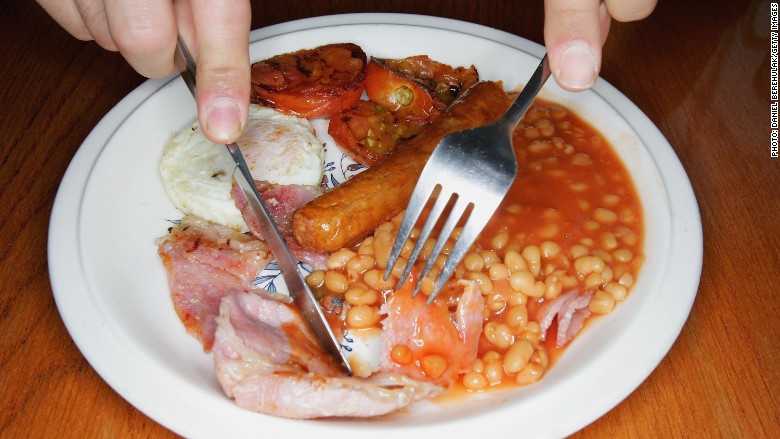
Brexit could make breakfast a lot more expensive.
The price of classic "full English" breakfast could spike by nearly 13% if Britain crashes out of the European Union, according to accounting firm KPMG.
Failing to agree a new trade relationship before leaving the EU in March 2019 would force the U.K. to trade under rules set by the World Trade Organization.
"If the U.K. leaves the EU without a trade deal or transitional agreement, we can expect both higher prices and a huge spike in red tape at the borders," said KPMG executive Bob Jones.
A full English breakfast typically includes toast, bacon, sausages, eggs, hash browns, tomatoes, mushrooms and baked beans, although other items are sometimes included.
KPMG said orange juice and olive oil would be the two fry-up ingredients with biggest price increase under the WTO tariffs, with the price of imported juice going up 34% and oil by 30%.
The cost of milk, eggs and bread would stay the same because they can be easily sourced from the U.K.
The research illustrates how even basic ingredients involve complex supply chains, making them pricier as tariffs accumulate.
Juice is bottled in Ireland from oranges grown in Spain, while beans are imported from the U.S. and cooked in Italy before being brought into the U.K.
Related: It's official. Business isn't investing in Britain.

The price of many staple ingredients is already higher because of the sharp fall in the value of the pound, which has declined 14% against the dollar since the referendum last June.
The weaker pound makes imports more expensive, helping to push inflation to a four-year high of 2.9% in May.
Higher breakfast costs weren't the only piece of negative Brexit news on Monday.
Data released by Visa showed that consumer spending in the U.K. fell for the second month in a row in June, rounding off the worst quarter since 2013.
As the price of essential food items grows, households are being forced to cut spending elsewhere.
"Spend on food and drink grew by nearly 2%, while household goods suffered from a substantial drop as consumers cut back on big ticket furniture and homewares," said Kevin Jenkins, managing director at Visa.
Related: Is the U.K. headed for a recession?
It's not just the consumers who are feeling the pain.
Businesses are suffering because of uncertainty surrounding the future relationship between the U.K. and its biggest trading partner.
A survey of chief financial officers done by Deloitte showed 72% think the business environment will be worse when the U.K. leaves the EU.
That's up from 60% in the previous quarter and the highest share since the referendum.


